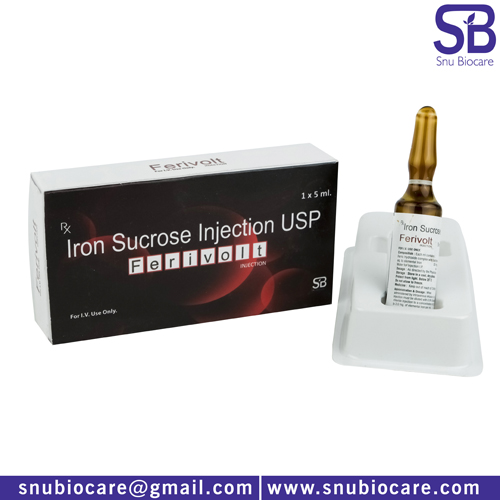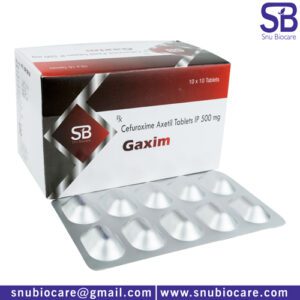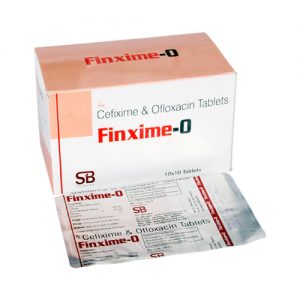Description
Iron Sucrose 100mg is a medication used to treat iron-deficiency anemia in chronic kidney disease. The medication is administered intravenously during consecutive dialysis sessions. The usual dose is 100 mg administered during consecutive dialysis sessions. The medication is usually given slowly over 2 to 5 minutes or as directed by the doctor. Iron Sucrose can also be mixed in a saline solution and given through an IV over a longer period of time.
Patients should inform the doctor or pharmacist about all the medications being taken, including over-the-counter medications, vitamins, and herbal supplements, to avoid any potential drug interactions. Patients should not take the medication if they are allergic to iron sucrose or any other ingredients in the medication. Patients should inform the doctor if they have any medical conditions such as liver disease, heart disease, or high blood pressure. If any side effects persist or worsen, it is important to inform the doctor or pharmacist immediately.
Uses
- Iron Sucrose is used to treat iron-deficiency anemia in patients with chronic kidney disease. Iron is an important part of red blood cells and is needed to transport oxygen in the body. Many patients with kidney disease cannot get enough iron from food and require injections. Iron Sucrose is given by injection into a vein as directed by the doctor.
- The medication is usually given slowly over 2 to 5 minutes or as directed by the doctor.
- Iron Sucrose can also be mixed in a saline solution and given through an IV over a longer period of time.
- Patients should inform the doctor or pharmacist about all the medications being taken, including over-the-counter medications, vitamins, and herbal supplements, to avoid any potential drug interactions.
- If any side effects persist or worsen, it is important to inform the doctor or pharmacist immediately.
How to use
The recommended dosage for Iron Sucrose injection is 0.5 mg/kg, not to exceed 100 mg per dose, every four weeks for 12 weeks given undiluted by slow injection or infusion. The total treatment course dose is 1000 mg within a 28-day period. The treatment may be repeated if iron deficiency recurs. The medication is given by injection into a vein as directed by the doctor. It is usually given slowly over 2 to 5 minutes or as directed by the doctor.
Iron Sucrose can also be mixed in a saline solution and given through an IV over a longer period of time. Patients should inform the doctor or pharmacist about all the medications being taken, including over-the-counter medications, vitamins, and herbal supplements, to avoid any potential drug interactions. If any side effects persist or worsen, it is important to inform the doctor or pharmacist immediately.
Side Effects
- Possible side effects of Iron Sucrose 100mg include bloating or swelling of the face, arms, hands, lower legs, or feet, blurred vision, chest pain or tightness in the chest, large, hive-like swelling on the face, eyelids, lips, tongue, throat, hands, legs, feet, or sex organs, loss of consciousness, noisy breathing, slow or irregular heartbeat, swelling of the joints, fever, cold or flu symptoms (sore throat, cough, stuffy nose, sneezing), muscle cramps, nausea, vomiting, stomach pain, strange taste in the mouth or decreased sense of taste, diarrhea, constipation, headache, cough, sore throat, respiratory tract infections, and low blood pressure.
- Patients should inform the doctor or pharmacist about all the medications being taken, including over-the-counter medications, vitamins, and herbal supplements, to avoid any potential drug interactions.
- Patients should inform the doctor if they have any medical conditions such as liver disease, heart disease, or high blood pressure.
Precautions
- While using Iron Sucrose injection, certain precautions should be taken. Patients should inform the doctor or pharmacist about all the medications being taken, including over-the-counter medications, vitamins, and herbal supplements, to avoid any potential drug interactions.
- Patients should not be treated with Iron Sucrose if they have ever had an allergic reaction to an iron injection.
- Patients should inform the doctor if they have any history of hemochromatosis or iron overload (the buildup of excess iron).
- Patients should be monitored closely while receiving the medication, and blood tests may be needed to check for unwanted effects.
- Patients may also need to monitor their blood pressure at home. If any changes to the normal blood pressure are noticed, the doctor should be informed immediately.
- Patients should call the doctor right away if they have a rash, itching, swelling of the face, tongue, and throat, trouble breathing, or chest pain after receiving the medication.
- Patients should inform the doctor if they are pregnant or breastfeeding before receiving the medication. If any side effects persist or worsen, it is important to inform the doctor or pharmacist immediately.













